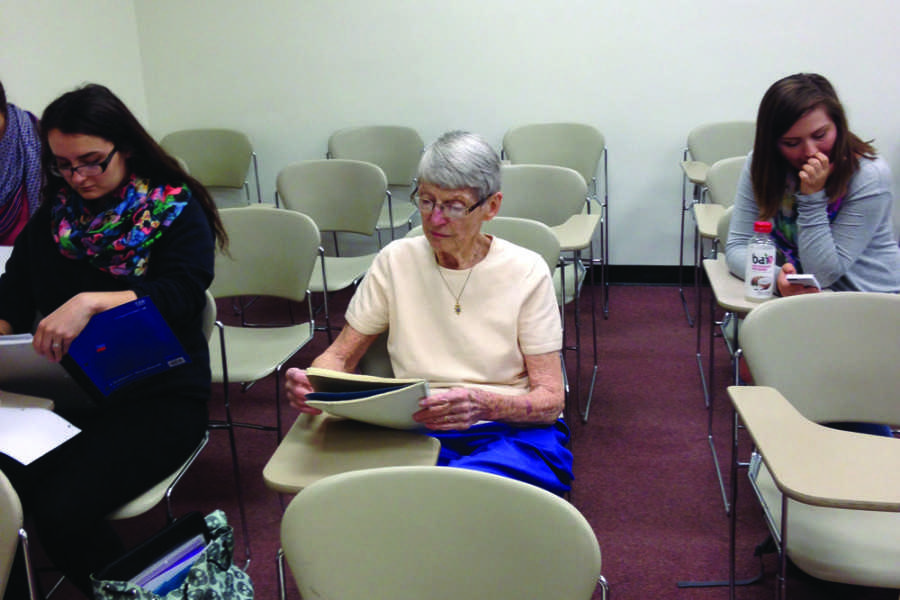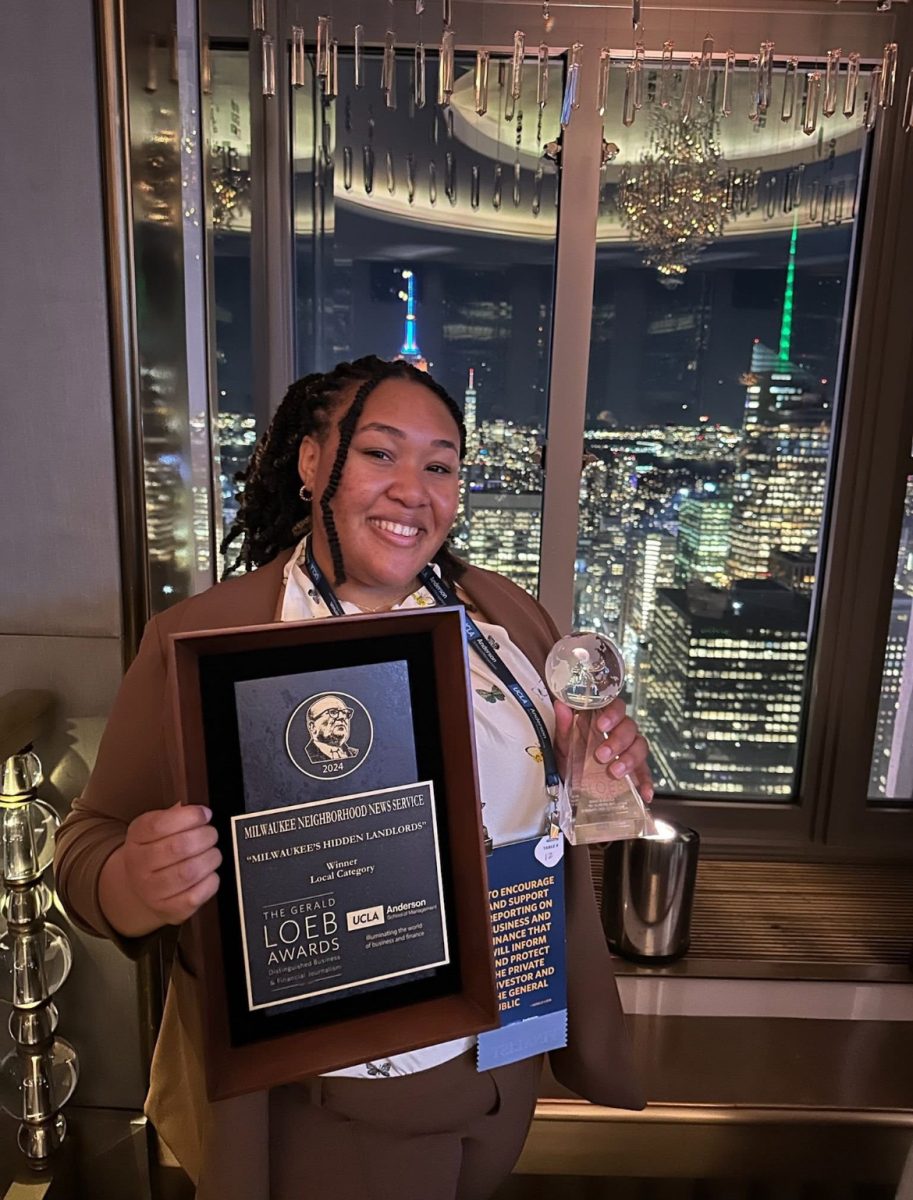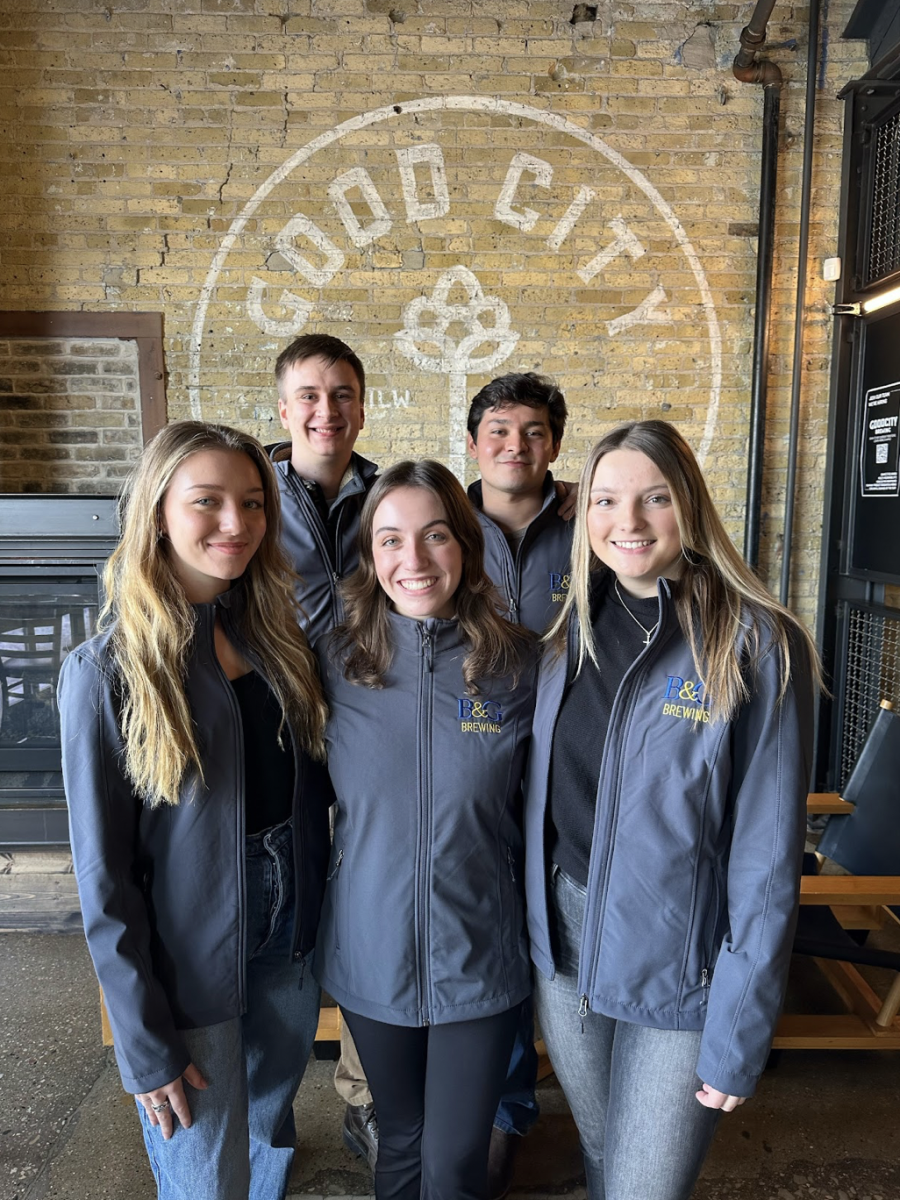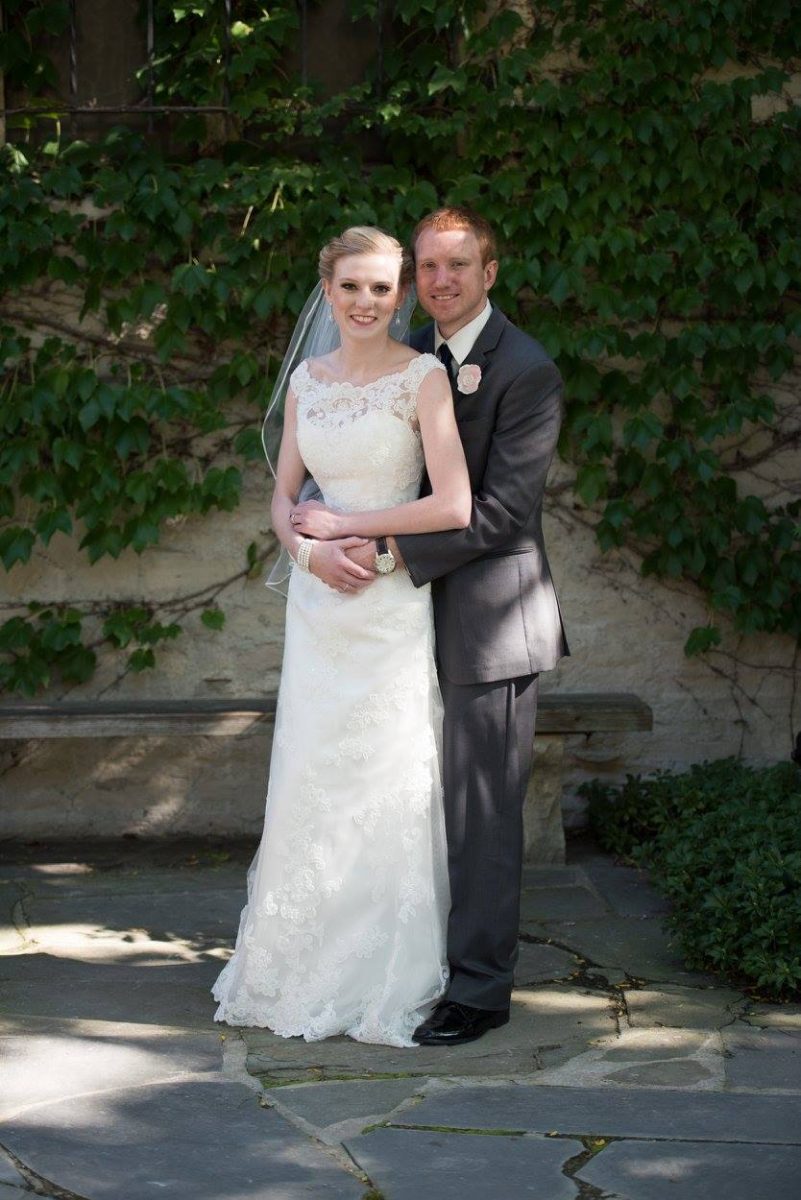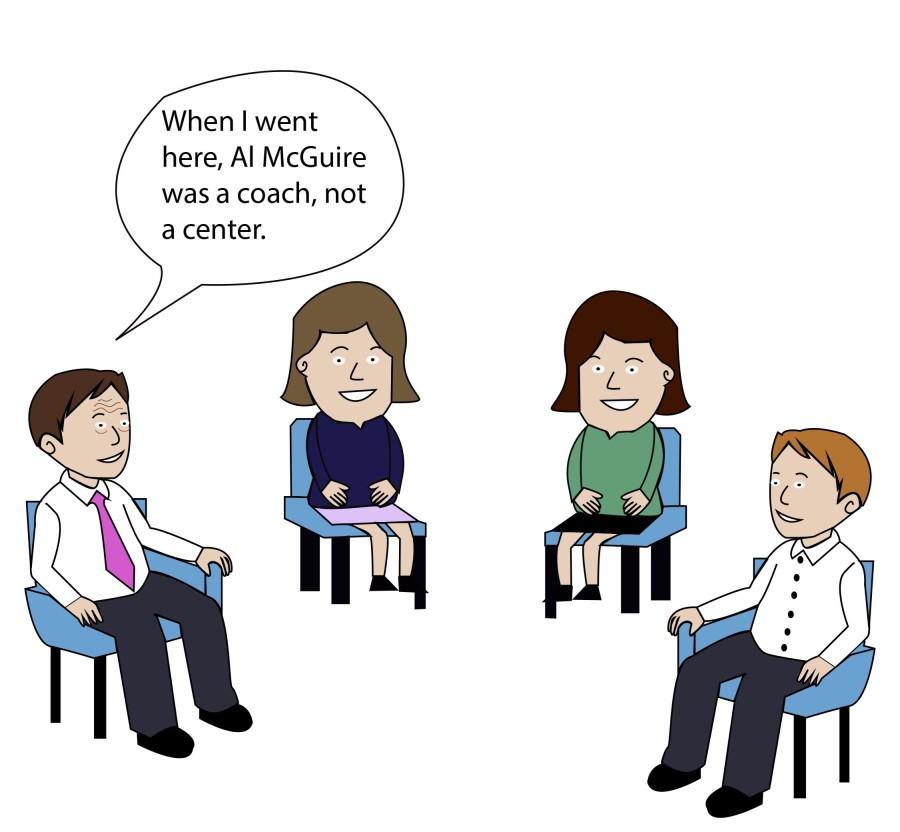After years of teaching, Lois Wakeman couldn’t make herself leave the classroom.
Wakeman, a former Milwaukee Public Schools teacher, attended Marquette just as the U.S. finished its war with the Axis nations in World War II. She remembers campus flooded with veterans returning home.
For nearly every semester in the past decade; however, Wakeman has returned to Marquette as a student.
“Out of 21 semesters, I’ve missed only three,” Wakeman said. “I would do anything to make it back to Marquette.”
Wakeman is one of 23 students enrolled in the College of Arts & Sciences’s Alumni in the Classroom program, where college alumni who graduated in 1969 or earlier can audit select College of Arts & Sciences courses for free and without credit. Since the program’s creation by the College of Arts & Sciences alumni board in 2004, Wakeman has taken a number of courses and is one of the most active participants.
This semester, Wakeman is taking Tudor England taught by Carla Hay, an associate history professor. She said she discovered genealogical evidence that connects her family to the nobility of Tudor-era England.
“(My husband and I) went to England in particular to do some root tracing and discovered a young cleric who was an Abbot, a member of my husband’s family,” Wakeman said. “(The cleric) became a bishop, courtesy of Henry VIII, after his abbey was dissolved by Henry the Eighth in order to acquire their wealth. It makes the whole period come alive.”
Over 300 alumni have participated in the program since 2006, and classes are offered depending on course and professor availability. After the logistics and scheduling are handled, alumni can attend one course per semester. Despite rotation, history, English, theology and other social sciences classes are consistently offered.
While students in the program are required to be diligent and keep proper attendance, they are exempt from homework and exams.
Ken Derdzinski, Alumni in the Classroom student and 1951 College of Arts & Sciences graduate, acknowledges challenges the program’s students can face, but still encourages alumni to get involved.
“Today, it certainly is different from when I was a student or growing up,”Derdzinski said. “In some cases, there is no comparison. One of the great parts of this program is I am able to put myself into a classroom here with the student body today.”
Mary Dunnwald, associate dean of the College of Arts & Sciences, said the program is relatively easy to organize even with generational differences between alumni and younger students.
“We recognize the value of the program, and there is not a whole lot of work to get it up and running,” Dunnwald said. “There are certain areas alumni choose … some courses lend themselves more easily (than others.)”
Alumni often are active in their courses and frequently add new insight to lectures. Gaby Maalouf, a freshman in the College of Business Administration, shares her history course, Growth of the American Nation 2, with multiple alumni in the program. She often sees Marquette students working to keep up with alumni, who show their sharp minds week after week.
“I think it’s great to have older classmates,” Maalouf said. “There have been several times when (the Rev. Steven) Avella (professor of the Growth of American Nation 2 class) will ask a question regarding general knowledge and it is only the alumni who know the answer.”
John Su, a professor in the College of Arts & Sciences and director of the core of common studies, said he sees the benefits alumni bring to class discussion. After seeing the alumni’s contributions to his post-colonial literature course over the past decade, he relishes the program and invites alumni with open arms.
“When you’re 18, 19, 21…you just have a different view of your own world than you will have thirty years from now,” Su said. “Their questions are far more precise and more grounded in historical questioning and political questioning.”
Many alumni involved in the program were on Marquette’s campus in the wake of World War II. From the late 1940s to ’50s, the campus was filled with war veterans going to school through the 1944 G.I. Bill, which streamlined servicemen into universities on government scholarships.
Derdzinski said that from 1947 to 1951, the demographics of Marquette were remarkably varied, ranging from former prisoners of war to recently discharged soldiers. To meet the demand, hollow tube-like metal buildings called Quonset huts were placed on campus to temporarily create extra space for classrooms.
“In winter … you take notes the best your frozen fingers can,” Wakeman said. “I remember feeling so sorry for my professor, who was obviously very, very cold.”
The Office of Student Involvement, Alumni in the Classroom’s original governing body, lacked the resources to oversee outreach and the program was subsequently canceled in 2009.
“For those of us left in the lurch, we were so upset,” Wakeman said. “We had meetings about what to do … we all missed it beyond words.”
A letter campaign and discussions with Marquette’s Jesuits and administrative offices were eventually able to reinstate the program.
“It’s given me a great deal of satisfaction to be able and ultimately do the learning that is involved,” Wakeman said. “It’s a very strong and motivating feeling. The Jesuit experience has been a very influential one on my life.”

